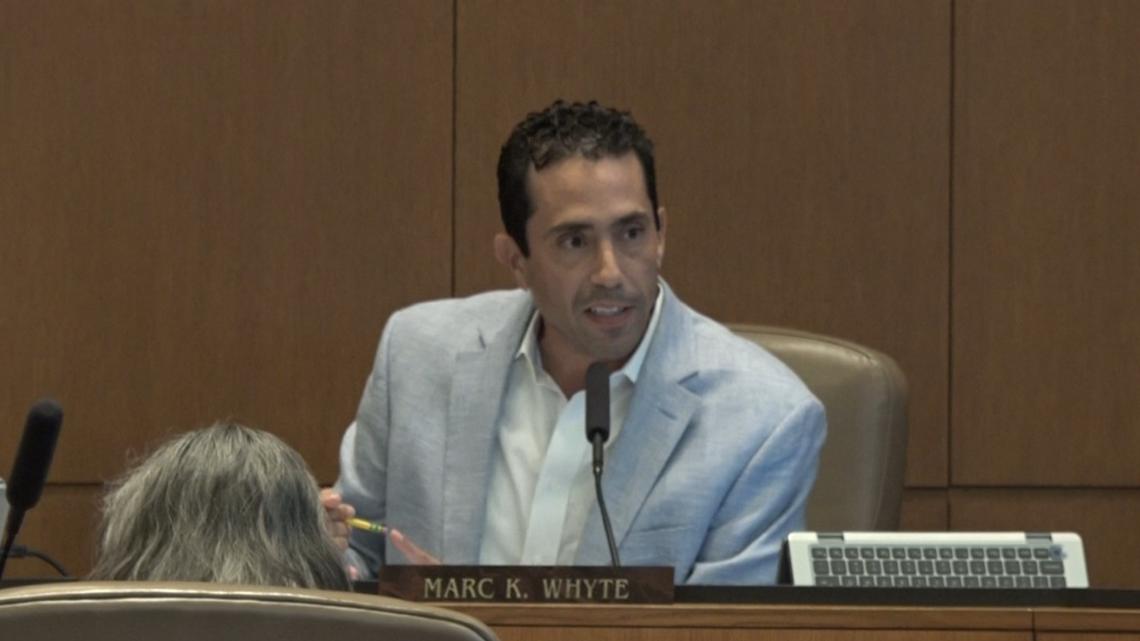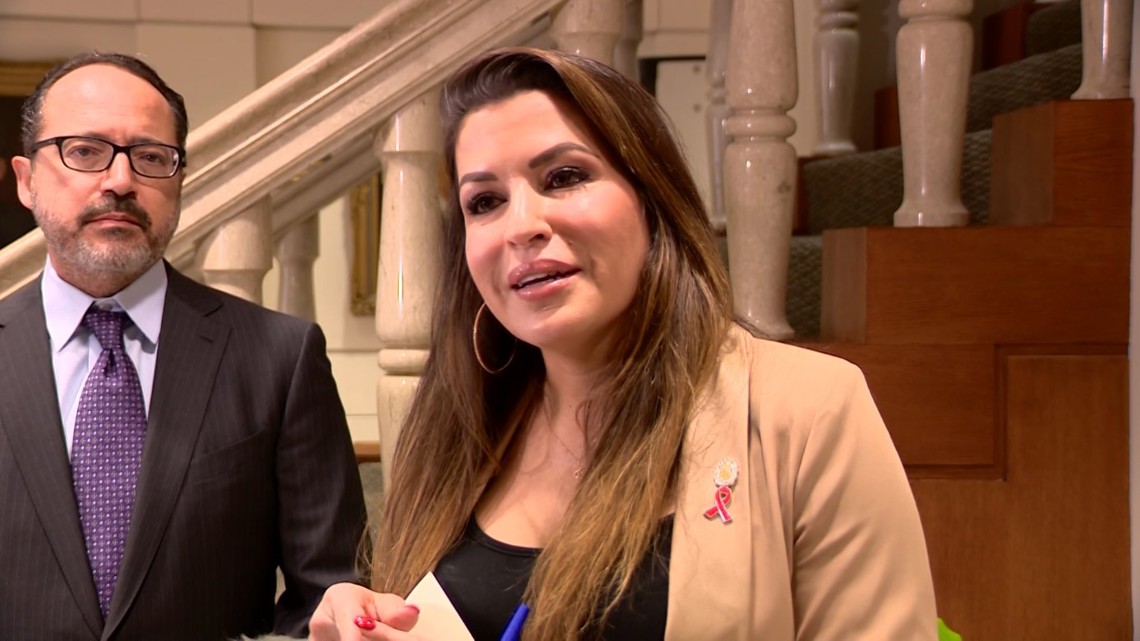CCRs, or Council Consideration Requests, are how council members propose initiatives for discussion before possibly becoming city ordinance.
SAN ANTONIO — A bipartisan contingent of San Antonio City Council members are pushing back against procedural changes Mayor Gina Ortiz Jones announced for the Council Consideration Request process, which determines which initiatives get to go before leaders for public discussion.
Those changes include adding steps that Council Consideration Requests, or CCRs, must take before reaching the Governance Committee. In a memo sent to council members and key staff on July 14, less than a month after her inauguration, Jones wrote that City Council members sponsoring a new CCR must “coordinate with the mayor’s chief of staff” before obtaining signatures from other council members who want to see the proposal considered.
Previously, council members submitting CCRs were only required to gather signatures before submitting to the city clerk. From there, it would then go to the Governance Committee, which deliberates and decides whether to send a CCR to full council.
“I want to make sure the City Council is spending our time wisely,” Jones said to a reporter’s question about the proposed changes at a Monday town hall. “The city attorney has said very clearly, and in numerous fashions, that all of those things, I can do as the mayor.”
At least three City Council members see it differently: as an attempt to unilaterally change the city ordinance which outlines those CCR procedures.
“What we want to make sure happens is that the process in place continues and is respected because it ensures transparency,” said District 10 Councilman Marc Whyte, who led a successful effort to streamline the CCR process in 2024. “These policy proposals that are put forth in the CCRs, they need to be debated on in public. City staff – unelected city staff – and the mayor’s office should not be able to quietly kill policy proposals in the dark of night.”
While the process as stated in the current ordinance allows for a sponsoring council member to gather support before officially filing (at least five signatures were needed before a CCR is sent to the city clerk’s office), the changes proposed by Jones stipulate that a drafted CCR must first go to the city manager and city attorney while Jones’ chief of staff also enters the process at an earlier stage.
Only after review by the city manger and city attorney can the sponsoring council member file their CCR to the city clerk.


Whyte said he isn’t opposed to discussions about improving the CCR process.
“But to do that,” he said, “we need to have a council debate on it.”
At the Monday town hall, Jones said the changes were rooted in District 7 Councilwoman Marina Alderete Gavito submitting a CCR that City Manager Erik Walsh wasn’t aware of until the mayor asked.
“They said, ‘I had no idea,'” Jones said. “That’s why I ask (council members) now: When you submit that, make sure you have the city manager just initial – not do anything extra, just initial – so that the rest of us know that that’s a true statement.”
Alderete Gavito called the mayor’s requirement that her chief of staff be involved before CCR submission “a risky precedent.”
“Imagine if we were to have a Republican mayor, it could mean that council members from Democratic districts would be forced to funnel their ideas through a chief of staff who may not align with their constituents’ values,” Alderete Gavito said.
Recent CCRs spearheaded by City Council have resulted in stronger penalties for owners of dangerous dogs; prohibited vape shops from operating near schools; streamlined utility notice for residents at risk of water disconnections; and cleared up city rules regarding the relocation of exotic birds.
Whyte said the CCR process as it stands before Jones’ proposed changes reflects that council members are talking with San Antonians in their districts about the issues most directly facing them.
“We then talk with each other and come up with solutions to the problems. Those get put down in CCRs that are filed, and then the proposed policy solution gets debated by all the council members in committee. Then, sometimes, before the entire 11-member body,” he said. “We need to have that process continue in public.”
Whyte, Alderete Gavito and District 5 Councilwoman Teri Castillo responded to Jones in a joint memo highlighting that the current process is orderly and efficient already.
“If you wish to change the CCR procedures, we request that you go through the proper channels… and bring forth your proposed recommendations to the full council for consideration and a vote,” the council members wrote in their response.
In that memo sent July 16, Whyte, Castillo and Alderete Gavito requested that Jones schedule a meeting by Aug. 15 to discuss the changes in public.


Two weeks later, the three council members say “no effort has been made to discuss and work through” the mayor’s proposed changes with the full City Council body. But Jones on Monday, referencing ongoing Spurs conversations and the budget season, said city leaders should “focus on business, not the petty stuff.”
“We’ve got real business to do, and that is what I’m focused on,” she said. “My process allows for those things to be reviewed faster.”
Regardless, the coalition of White, Castillo and Alderete Gavito is trying to force that public conversation. On Thursday they submitted a three-signature memo to the city clerk, the minimum needed to pave the way for a special City Council meeting on Aug. 15. That’s one of three ways a special meeting can find its way onto the calendar; the mayor or city manager can also call for one.
“A memorandum alone cannot supersede a valid ordinance duly passed by council,” Whyte, Castillo and Alderete Gavito wrote in their joint memo. “We welcome an open and transparent discussion with our colleagues about potential improvements to the CCR process.”
As of Thursday night, a special City Council meeting had not been publicly scheduled.
Meanwhile, it remains to be seen what will come of the dozen CCRs filed this year that have yet to be heard in Governance—proposals that seek to, among other things, use AI to make city tasks more efficient, explore new ways to support San Antonio teachers, track heat-related deaths in the city and institute a Coach Gregg Popovich Day.
“This is not political,” Whyte said. “This is just a matter of how good government should be conducted.”
